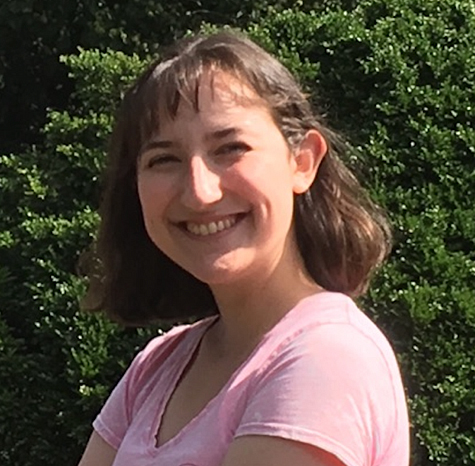
Emily Mason
Scientist | NASA's Goddard Space Flight Center
Contents
- Education
- What motivated you to volunteer as a NASA citizen scientist? How did you learn about NASA citizen science?
- What do you do when you’re not doing science with NASA? Tell us about your job and your hobbies.
- What have you learned about the process of science from your time on NASA citizen science projects?
- Which peer-reviewed research publications have you contributed to through your citizen science work? What was your role in the research and writing process?
- What are your favorite NASA citizen science projects to work on, and why?
- What advice would you give to others who might want to volunteer with NASA citizen science?
Education
Homeschooled
SUNY New Paltz: Physics/Astronomy/Asian Studies
Catholic University of America: PhD in Physics
What motivated you to volunteer as a NASA citizen scientist? How did you learn about NASA citizen science?
I can’t remember how I first stumbled across the NASA projects on Zooniverse, but it was sometime in college.
I was a space nerd as a kid. I don’t know if anyone else remembers the NASA website for kids from the ’90s that let you collect trading cards that had facts about planets and things on them, but I grew up on that.
I worked summer jobs in high school to save up money for a telescope, did backyard astronomy outreach with a local club, and things like that. Then I got to college and was totally derailed into humanities. But, after I graduated, I sat up all night to watch the Curiosity rover land on Mars and realized I’d made a huge mistake. I put myself back through college for astrophysics, and during one break I discovered Planet Hunters (citizen scientists helping search data for signs of planets beyond our solar system)! I devoted a lot of time the next few vacations to that project.
Science isn't some ivory tower pursuit. Grab your device of choice and get involved!

Emily mason
Research Scientist
What do you do when you’re not doing science with NASA? Tell us about your job and your hobbies.
That time spent doing citizen science helped prepare me for the NASA internships I participated in for a few years. Now I’m a solar physics research scientist.
When I’m not doing research (or now, running my own citizen science project), I’m running around after my toddler. I recently got to show her the Moon and Jupiter for the first time, using the same telescope I saved for in high school. That was a really special moment.
What have you learned about the process of science from your time on NASA citizen science projects?
I think the most important thing I learned was that when going through a new dataset, it pays to have a training set and to go back over your early classifications later. It’s remarkable how much your judgment changes after looking at several hundred examples, and it’s important to be consistent.
Which peer-reviewed research publications have you contributed to through your citizen science work? What was your role in the research and writing process?
Honestly, I have no idea what I contributed to with the projects I was on, I never went back and checked. I hope my classifications were useful to the principal investigators (PIs)! Now, I’m getting ready to start my first citizen science project (Active Region Spotters) as PI, and I’m excited to share the process with our budding citizen scientists.
What are your favorite NASA citizen science projects to work on, and why?
Planet Hunters and Disk Detective were my favorites, ironically (as neither has anything to do with my actual field of study). There’s just something really intuitive and exciting about looking at light curves and knowing you might be peeking at an exoplanet.
What advice would you give to others who might want to volunteer with NASA citizen science?
Do it! Literally anyone can contribute; it’s fun and easy and useful. I don’t think most people realize that they can participate in science without spending years slogging through textbooks, and how happy and grateful scientists are to see those classifications pile up. Science isn’t some ivory tower pursuit – grab your device of choice and get involved!




























